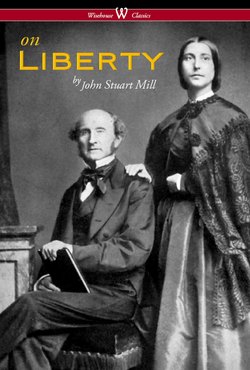On Liberty (Wisehouse Classics - The Authoritative Harvard Edition 1909)

Реклама. ООО «ЛитРес», ИНН: 7719571260.
Оглавление
Джон Стюарт Милль. On Liberty (Wisehouse Classics - The Authoritative Harvard Edition 1909)
Отрывок из книги
On Liberty
by
.....
There is, in fact, no recognized principle by which the propriety or impropriety of government interference is customarily tested. People decide according to their personal preferences. Some, whenever they see any good to be done, or evil to be remedied, would willingly instigate the government to undertake the business; while others prefer to bear almost any amount of social evil, rather than add one to the departments of human interests amenable to governmental control. And men range themselves on one or the other side in any particular case, according to this general direction of their sentiments; or according to the degree of interest which they feel in the particular thing which it is proposed that the government should do; or according to the belief they entertain that the government would, or would not, do it in the manner they prefer; but very rarely on account of any opinion to which they consistently adhere, as to what things are fit to be done by a government. And it seems to me that, in consequence of this absence of rule or principle, one side is at present as often wrong as the other; the interference of government is, with about equal frequency, improperly invoked and improperly condemned.
The object of this Essay is to assert one very simple principle, as entitled to govern absolutely the dealings of society with the individual in the way of compulsion and control, whether the means used be physical force in the form of legal penalties, or the moral coercion of public opinion. That principle is, that the sole end for which mankind are warranted, individually or collectively in interfering with the liberty of action of any of their number, is self-protection. That the only purpose for which power can be rightfully exercised over any member of a civilized community, against his will, is to prevent harm to others. His own good, either physical or moral, is not a sufficient warrant. He cannot rightfully be compelled to do or forbear because it will be better for him to do so, because it will make him happier, because, in the opinions of others, to do so would be wise, or even right. These are good reasons for remonstrating with him, or reasoning with him, or persuading him, or entreating him, but not for compelling him, or visiting him with any evil, in case he do otherwise. To justify that, the conduct from which it is desired to deter him must be calculated to produce evil to some one else. The only part of the conduct of any one, for which he is amenable to society, is that which concerns others. In the part which merely concerns himself, his independence is, of right, absolute. Over himself, over his own body and mind, the individual is sovereign.
.....